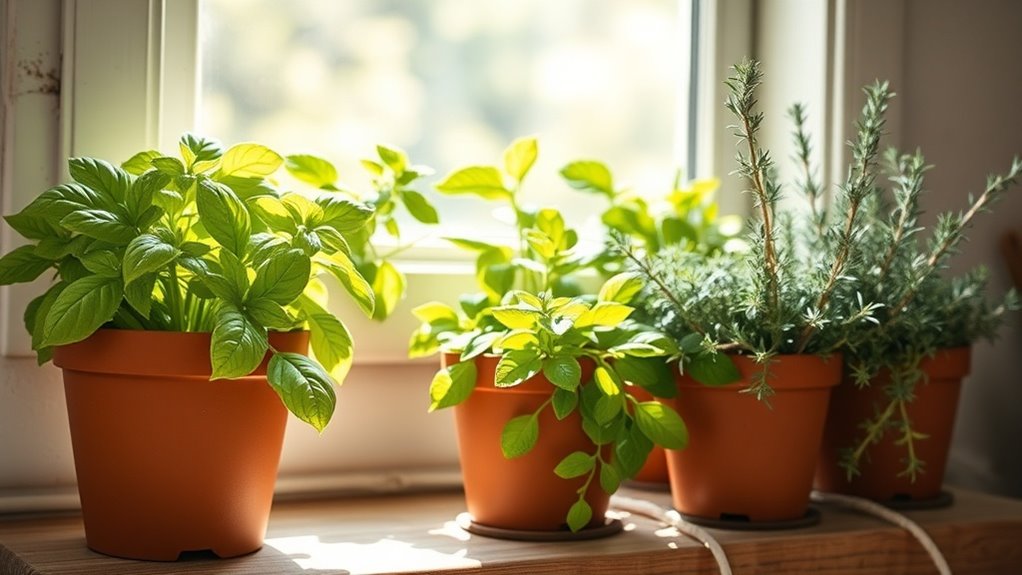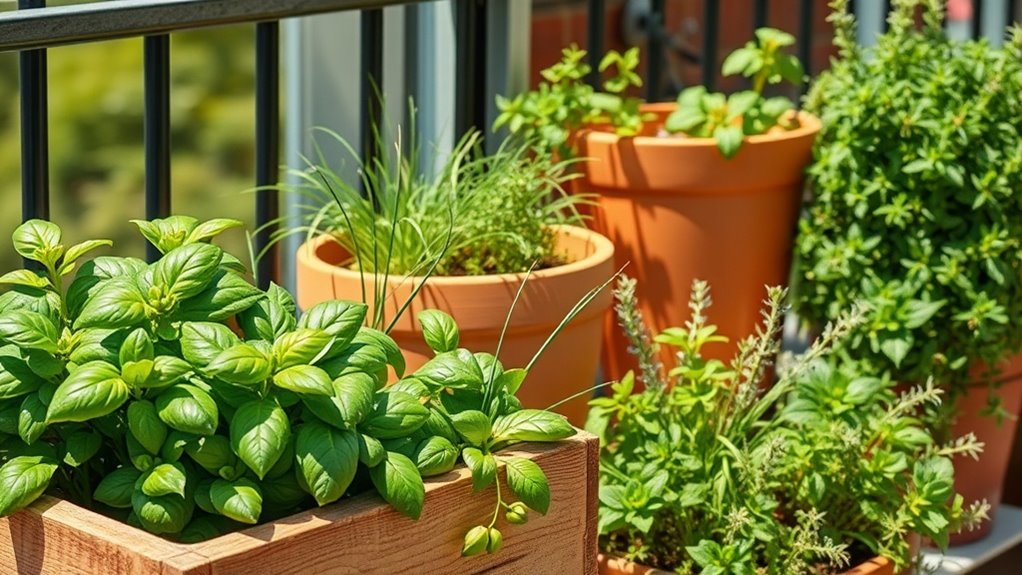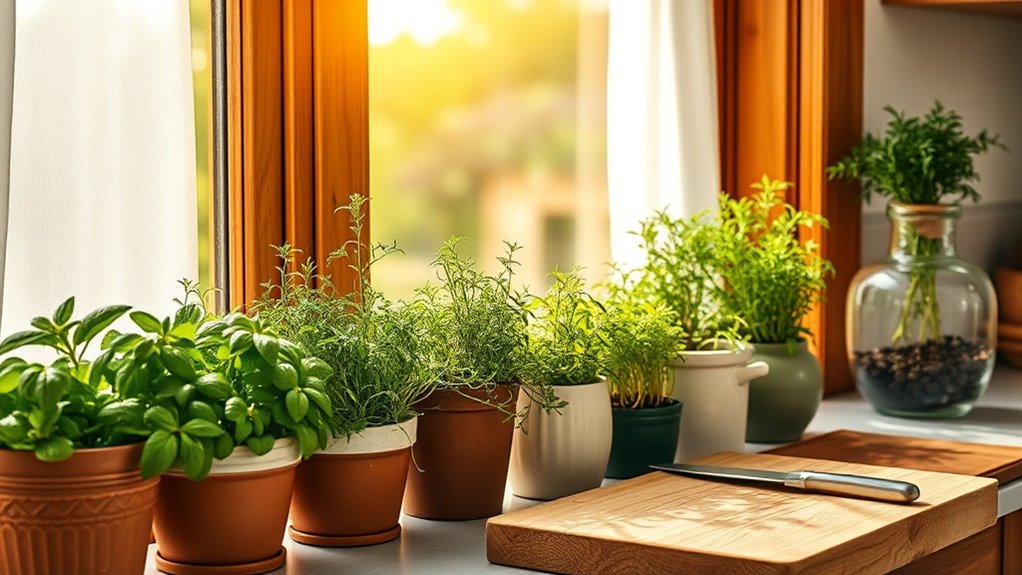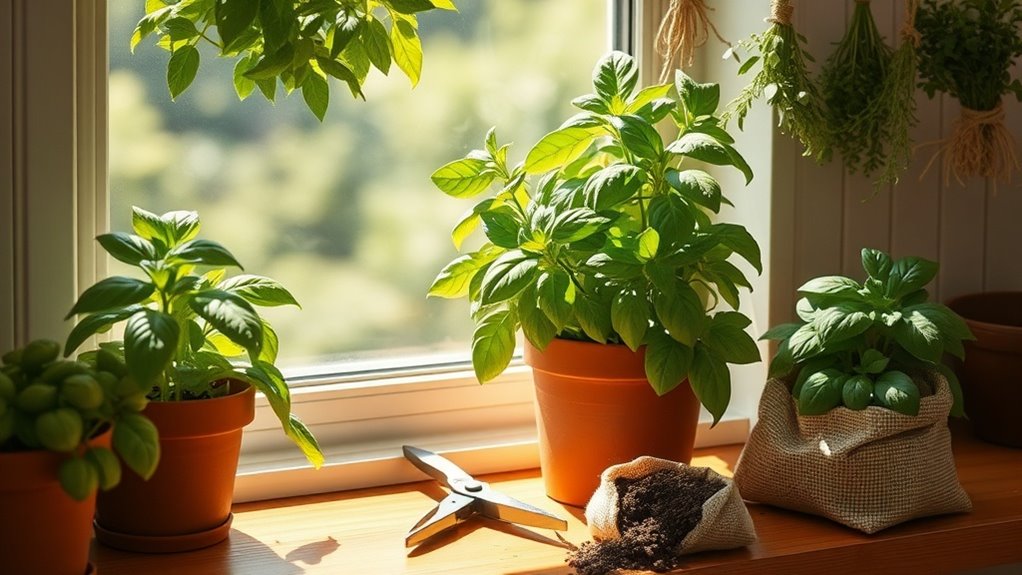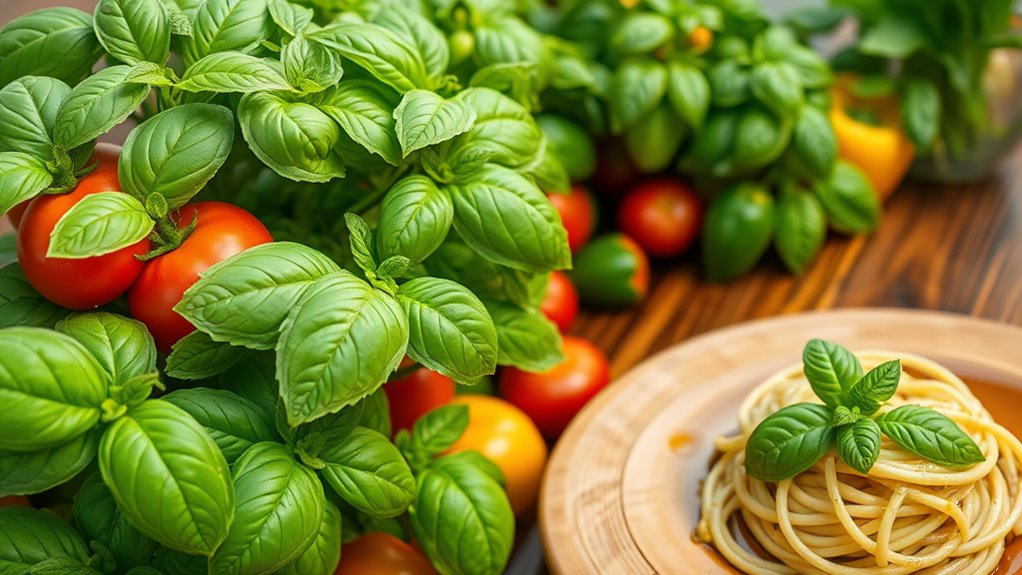The Low-Maintenance Herbs Every Home Cook Should Grow
Just as a painter needs a palette of colors, every home cook benefits from a selection of low-maintenance herbs. These culinary gems, like basil, chives, and parsley, can transform your dishes with minimal fuss. Their ability to thrive in various conditions means you can enjoy fresh flavors year-round. Curious about which herbs can make the biggest impact with the least effort? Let’s explore some of the best options to spruce up your kitchen garden.
Basil: The Versatile Favorite
Basil is a must-have herb for any home cook looking to elevate their dishes with minimal effort. This aromatic herb thrives in sunny spots and requires little care, making it one of the best low-maintenance herbs out there.
With its sweet, peppery flavor, you can enhance salads, pastas, and sauces effortlessly. Plus, when harvested regularly, basil keeps producing fresh leaves all season long. Additionally, growing basil indoors provides a year-round supply of fresh herbs to incorporate into your meals.
Chives: The Easy Allium
When you want an herb that adds a subtle oniony flavor without demanding much from you, chives are the perfect choice. They thrive in various conditions and require minimal care. Additionally, chives are a perennial herb that comes back year after year once established. Check out the table below for quick references on chive cultivation:
| Aspect | Details | Tips |
|---|---|---|
| Light | Full sun to partial shade | Avoid too much shade |
| Watering | Moderate | Keep soil moist |
| Soil | Well-drained | Add compost yearly |
| Harvesting | Regularly cut | Cut back to encourage growth |
| Pests | Minimal issues | Watch for snails |
Parsley: The Nutrient-Rich Herb
Chives may offer a gentle onion flavor, but parsley brings a vibrant punch to your dishes while packing a nutritional wallop.
This versatile herb is rich in vitamins A, C, and K, boosting both flavor and health.
Whether you sprinkle it over soups or blend it into sauces, growing parsley is simple and rewarding, making it an essential addition to your kitchen garden. Adding organic fertilizers, such as worm castings, can enhance the vitality and growth of your parsley plants.
Mint: The Refreshing Perennial
Mint is a fragrant herb that can transform your culinary experience with its refreshing flavor and aroma.
It’s incredibly easy to grow, thriving in containers or gardens with little effort.
Use mint in beverages, salads, or as a garnish for desserts to elevate your dishes.
Just be mindful of its spreading nature; regular trimming keeps your mint in check and fresh!
Additionally, make sure to give your mint 6-8 hours of light each day to ensure its optimal growth and flavor.
Rosemary: The Aromatic Woody Herb
After enjoying the vibrant punch of mint, it’s time to explore another herb that can elevate your cooking: rosemary.
This hardy, aromatic herb thrives in sunny spots and brings a wonderful depth to your dishes.
- Pairs well with meats and roasted vegetables
- Ideal for infused oils and marinades
- Drought-tolerant and easy to grow
- Can be used fresh or dried
- It’s beneficial to create habitats for birds as they can help control pests in your herb garden.
Thyme: The Resilient Herb for Flavor
While you may already be familiar with various herbs, thyme stands out as a resilient gem that can truly enhance your culinary creations.
Its earthy, slightly minty flavor pairs beautifully with meats, vegetables, and soups.
Easy to grow, thyme thrives in well-drained soil and full sunlight.
Just snip a few sprigs whenever you need a burst of herbal goodness in your dishes.

